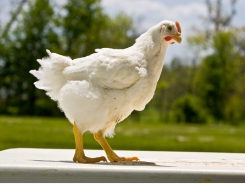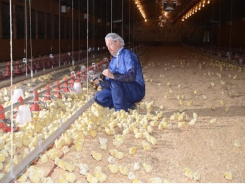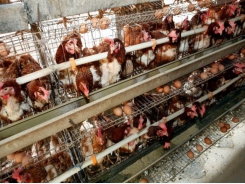Developing nations need robust support to reduce medicine use

It can seem distinctly unfair to judge developing countries’ practices when it comes to the environment or use of fossil fuels. After all, the western world was able to freely exploit resources before science proved what harm they can cause.
Photo: Koos Groenewold
There’s an argument that it’s the same for antibiotic use in farms. Until relatively recently, there was little in the way of restriction on antibiotics use in many developed countries and their populations benefitted from the intensively produced protein that resulted. People no longer had to worry about where their next meal was coming from, so could focus on improving economic output.
As resistance levels have increased, however, regulations have tightened and, in many cases, farmers have successfully reduced their use of medicines sustainably.
But in less developed regions it is clear that there is still some work to do, after an investigation found the antibiotic colistin for sale without prescription in India. What’s more, the packaging reportedly advertised improved growth rates as a benefit of mixing the drug with poultry rations.
Colistin is considered critically important by the World Health Organization, and is the only drug left that can treat patients with carbapenem-resistant infections.
The medicines were bought by journalists working for UK news organisation the Bureau of Investigative Journalism. As part of the report it asked Timothy Walsh, professor of medical microbiology at Cardiff University, for his views on the matter – he suggested it was “complete and utter madness” to use the drug in poultry farming.
India’s ministry for health introduced limited restrictions to antibiotic use last year, and the International Poultry Council recently released a position paper on the subject that has some promising features. But, crucially, using the drugs as growth promotors was not formally banned by either.
While the argument about allowing developing countries to do so in their own time stands, there’s a real risk that good medicine stewardship in some regions will be totally undermined by low standards in others – after all, resistant bacteria does not respect borders.
Related news
Tools

Phối trộn thức ăn chăn nuôi

Pha dung dịch thủy canh

Định mức cho tôm ăn

Phối trộn phân bón NPK

Xác định tỷ lệ tôm sống

Chuyển đổi đơn vị phân bón

Xác định công suất sục khí

Chuyển đổi đơn vị tôm

Tính diện tích nhà kính

Tính thể tích ao




 The upside to vegetarian-fed broilers
The upside to vegetarian-fed broilers  Reasons for buying animal welfare friendly eggs researched
Reasons for buying animal welfare friendly eggs researched